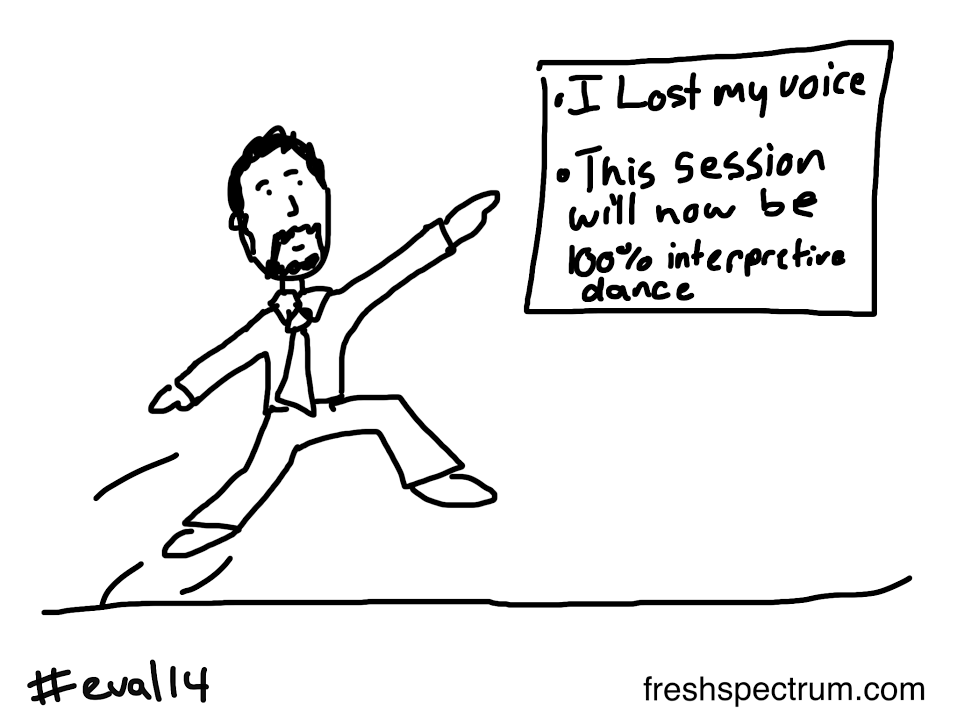You’ve taken great care to visualize your data and prep for your big conference presentation… until disaster strikes. Get back in the game with today’s post from Isaac Castillo. -Ann

If you present enough, you will encounter the situation I have today at #Eval14: You woke up this morning and have lost your voice. And of course, you present later in the day. How can you possibly recover in time to present?
Well, don’t worry. I am here to offer some advice that comes from decades of experience presenting in less than ideal situations.
First, do not panic. You can easily recover your voice for a 60 minute presentation. The key with recovering your voice comes in awakening your vocal cords. So, how do we do this?
Start by drinking hot beverages. Hot tea with lemon and honey is ideal, but any hot beverage will do. The hot liquids will help to loosen and awaken your vocal cords – getting them ready for use. However…..
Stay away from dairy products. As any speech coach will tell you, consuming dairy before a presentation is a bad thing even when you are feeling good. But if you have lost your voice, dairy will make things worse. Dairy products coat your vocal cords, making them more difficult to use. So, you can still have your coffee, but make sure you have it without milk or cream.
Next, keep eating. You may not feel great, but it is important to keep eating for two reasons. One reason is that you need your energy, and food is energy. If you are hungry, you will feel tired, and it will make your vocal cords feel worse. Another reason is that food will allow you to again get your vocal cords ready to use – although you aren’t talking, you are still moving your vocal cords when you swallow, which helps get them ready for use.
Finally – don’t use your vocal cords more than you have to. That means that you probably need to limit the number of conversations you have with people, especially right before your presentation. You are simply saving your vocal cords. Many people encourage gargling with mouthwash or water before you speak – but I think this is a horrible idea – it stresses your vocal cords at a time when you want to preserve them.
Right before you speak – drink some hot liquid, have a quick snack and speak aloud for 60 seconds to get your voice ready. Then start speaking. Make sure to have plenty of liquids at hand to drink while you talk – you will need them, but you will make it through! I promise.
Good luck and have a great presentation!


Leave a Reply